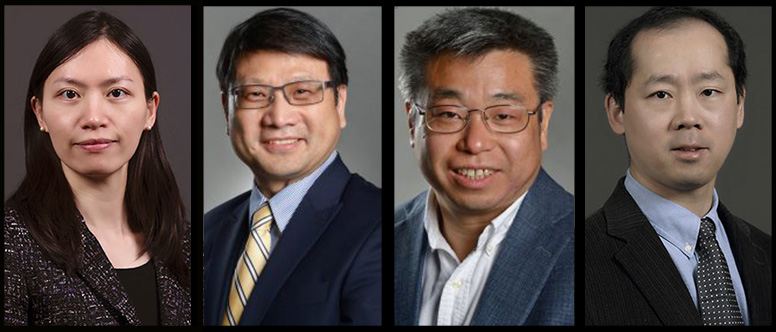July 21, 2020

Students selected for a prestigious SFS scholarship at Mizzou Engineering will have the opportunity to study with some of the top minds in cyber security, information technology and data analytics.
The Scholarship for Service (SFS) Program is a $3.6M project sponsored by National Science Foundation to promote cybersecurity research and education. The program offers the scholarship which fully covers tuition and fees, provides $34,000 annual stipend and additional $9,000 funding for equipment, travel and professional development.
“In addition to the monetary benefits, recipients of this scholarship will be able to collaborate with outstanding researchers,” said Dan Lin, director of the I-Privacy Lab, and an associate professor of Electrical Engineering and Computer Science. Lin oversees the SFS Program. She has around 100 research publications. Her recent research projects include privacy protection in social media, ransomware detection and defense, autonomous vehicle scheduling and the related privacy protection in Vehicular Ad-hoc Networks.
Research Team
Also on the SFS scholarship research team are:
- Chi-Ren Shyu, director of the University of Missouri Informatics Institute and professor in electrical engineering and computer science. Shyu’s research projects are related to biomedical and big data analytics. Prospective SFS scholars will have opportunities to work in cloud computing environments and learn how to ensure security, privacy and trustworthiness during big data processing.
- Dong Xu, AAAS Fellow, director of the Information Technology Program, and endowed professor of electrical engineering and computer science. Xu’s research is in bioinformatics and machine learning. Prospective SFS scholars will gain hands-on experience on deep learning on real medical records as well as attack and defense mechanisms.
- Wei Jiang, co-director of the I-Privacy Lab, associate professor of computer science and electrical engineering. Jiang’s research projects include privacy and preserving data analytics, multi-party computation and applied cryptography. Prospective SFS scholars will have the opportunities to work on challenging problems such as building fully anonymous communication channels.
“By entering the SFS program, students have the freedom to choose from a variety of exciting cutting-edge cybersecurity topics to work on and gain hands-on experience,” Lin said. “Past SFS recipients have had exciting outcomes. Many are able to complete their PhD in 3.5 years, conduct prestigious internships such as at the Department of Homeland Security and then secure jobs in either government agencies or national labs right after graduation. For most, the starting salary is six figures.”